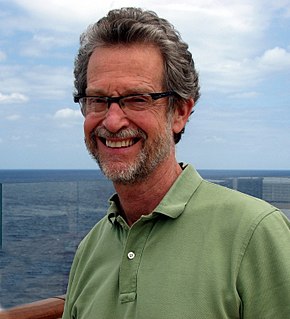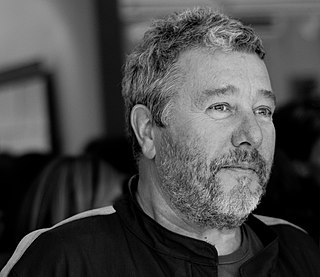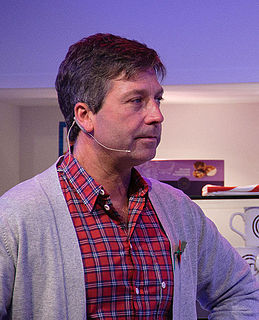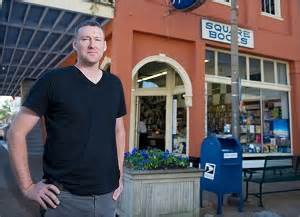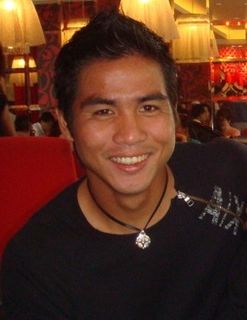A Quote by Ridley Pearson
As a young boy, I read 'Cheaper by the Dozen' and immediately became neurotic about my use of time. It taxed me severely, but only for the next 50 years. But I think it also allowed me to discipline myself to sit in the chair and be a writer, where one of the most needed qualities is patience.
Related Quotes
Working with Emeco has allowed me to use a recycled material and transform it into something that never needs to be discarded - a tireless and unbreakable chair to use and enjoy for a lifetime. It is a chair you never own, you just use it for a while until it is the next persons turn. A great chair never should have to be recycled. This is good consideration of nature and man kind.
My students are often asking me, 'What do you think are the most important qualities for a writer?' And one thing I always tells them is that it's helpful to be willing to sit in a space of uncertainty. There are entire years, especially with novels, where you really don't know where the project is going.
When I started out on my pilgrimage, I was using walking for two purposes at that time. One was to contact people, and I still use it for that purpose today. But the other was as a prayer discipline. To keep me concentrated on my prayer for peace. And after a few years I discovered something. I discovered that I no longer needed the prayer discipline. I pray without ceasing now. My personal prayer is: Make me an instrument through which only truth can speak.
I had an upbringing in which I was allowed to be free and use my mind. My parents only helped me to be myself. It was only in my teenage years that I met people who made me start having doubts about who I was. They said you shouldn't be confident, you shouldn't be strong. It is only when you meet those other people that you lose confidence.
I was born 50 years after slavery, in 1913. I was allowed to read. My mother, who was a teacher, taught me when I was a very young child. The first school I attended was a small building that went from first to sixth grade. There was one teacher for all of the students. There could be anywhere from 50 to 60 students of all different ages.
I don't think about the reader in any conscious way that impacts the writing, as far as, Hey, most readers would like this! But at the same time, if it were presented to me: "John, you're going to write a novel. It's going to take you a few years. When you're done with it, there's a law that no one's allowed to read it." I don't think I would write it. I want someone to read it!
I wanted to write about the time when science became modern, around the 1950s. Right after physicist J. Robert Oppenheimer, science started being so politicized and used as such a political weapon. When my father, who is a scientist, tells me about those years, I get a competing portrait of people who were expected to behave normally and be decent respectable members of society and who were also allowed this freedom to think in big and expansive ways. Now, when you think about people who work in labs, they're allowed to be socially inept in a very fundamental way.
It was time to expect more of myself. Yet as I thought about happiness, I kept running up against paradoxes. I wanted to change myself but accept myself. I wanted to take myself less seriously -- and also more seriously. I wanted to use my time well, but I also wanted to wander, to play, to read at whim. I wanted to think about myself so I could forget myself. I was always on the edge of agitation; I wanted to let go of envy and anxiety about the future, yet keep my energy and ambition.
As a young boy growing up in rural India, most of what I knew of the world was what I could see around me. But each night, I would look at the Moon - it was impossibly far away, yet it held a special attraction because it allowed me to dream beyond my village and country, and think about the rest of the world and space.
I think I'll go over and introduce myself to that little red-haired girl. I think I'll introduce myself, and then ask her to come over and sit next to me. I think I'll ask her to sit next to me here, and then I think I'll tell her how much I've always admired her... I think I'll flap my arms, and fly to the moon.
I now look at the things I could have done better and instead of beating myself up about it, since I can't turn back time, I try to remember to ask myself, "what was this experience sent to me to teach me?" I think specifically about what I will do better next time, then I actively look for moments to practice for the next time.
